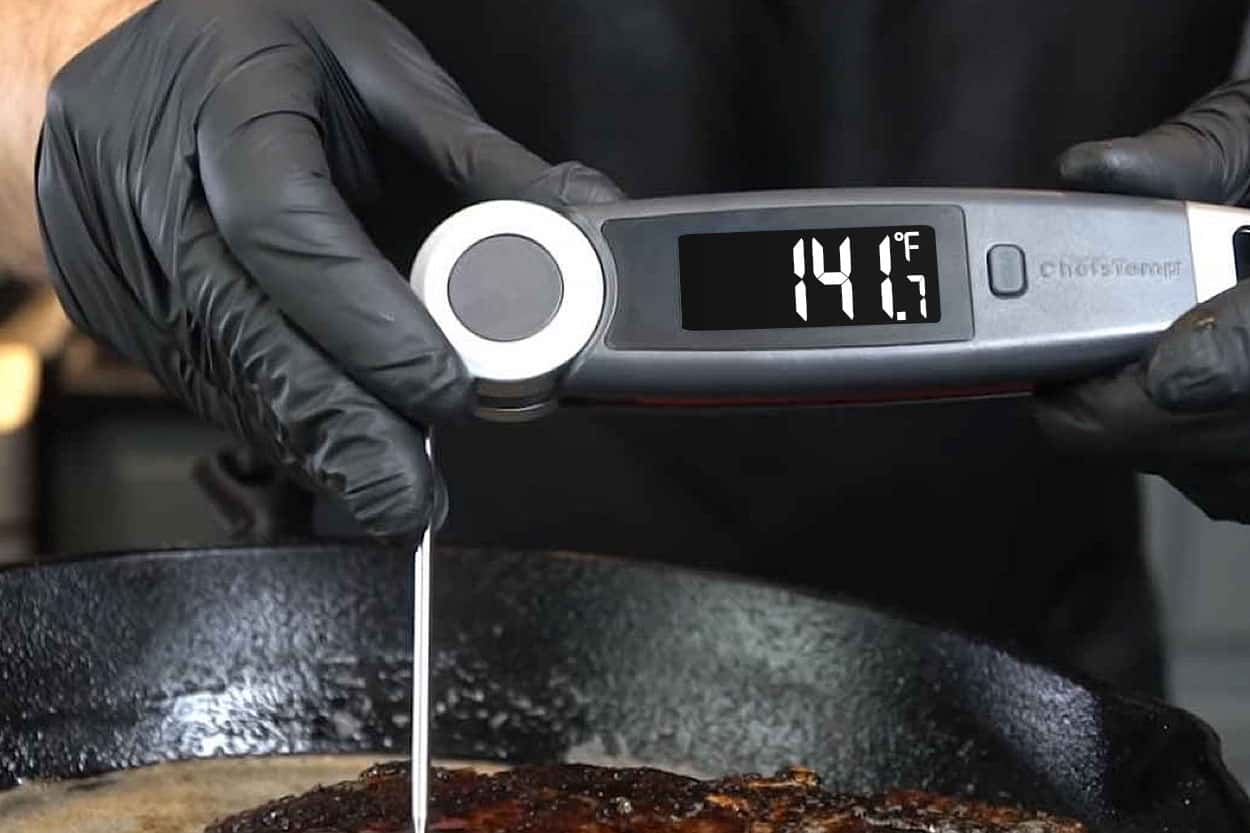
Can You Use A Meat Thermometer for Oil?
Can you use a meat thermometer for oil? This is a question commonly asked by those who are new to using thermometers when cooking. In this guide, you will discover if a meat thermometer can be used to check the temperature of the oil and a few other things you need to know to get the most out of thermometers.
Kitchen thermometers take out the guesswork in cooking, this is why professional chefs have different types of thermometers in their kitchen for different types of cooking and purposes. However, most home cooks have just one type of thermometer – a meat thermometer. This is fine, a meat thermometer is incredibly versatile and can be used for almost any type of cooking.
Table of Contents
Can You Use a Meat Thermometer for Oil?
The short answer is yes. The term meat thermometer is quite a misnomer, as you can use this type of thermometer to get an accurate reading from almost anything.
Most meat thermometers available on the market today can tolerate high temperatures. Using a meat thermometer for tracking oil temperature is actually a great option if you don’t have a specific frying thermometer. However, as oil reaches a significantly higher temperature than meat, you need a sturdy meat thermometer should you opt to use it for measuring oil temperature.
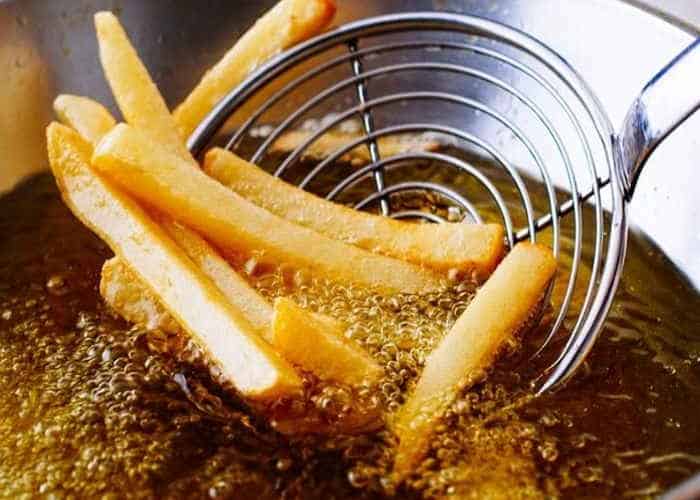
What is the Ideal Oil Temperature When Cooking?
The recommended oil temperature for frying is around 365°F to 375°F.
Also, note that different types of cooking oils have different smoke points. Light olive oil, which is used for most types of cooking and baking has a smoke point of 468˚ F. Extra virgin olive oil has a lower smoking point of 410˚ F. Avocado oil, which is a popular choice for salad dressings and baking has a smoking point of 520˚ F. Almond oil, which is also often used for salad dressings and is a good source of vitamin E, has a smoking point of 430˚F. Butter, canola, and coconut oil have a boiling point of 350˚F, 400˚F, and 350˚F respectively.
As you can see, some cooking oils can reach really high temperatures. If your thermometer isn’t designed to reach high temperatures, then you are better off with a thermometer that is made specifically for this purpose. Some kitchen thermometers are designed to measure the surface temperature of food or lower cooking temperatures. Thus, they are definitely not suitable for measuring the high temperatures reached by most cooking oils.
Nonetheless, if you have a meat thermometer with a high-temperature gauge (up to 500˚ F), then it is completely fine to use it for oil. As a matter of fact, it’s a popular choice as it can be used for a wide array of cooking methods, from baking, frying, and even measuring the internal temperature of candies, meat, and other food that can have a really high temperature when being cooked. They also give precise readings. While there may be some deviations when using different meat thermometers, they are insignificant.
How Do You Measure Oil Temperature with a Meat Thermometer?
Using a meat thermometer for measuring oil temperature is quite straightforward – simply dip the thermometer into the oil. Allow the thermometer to read the oil temperature for around 30 seconds. For a glass meat thermometer, you have to leave it for about three minutes.
Before checking the temperature of the oil, make sure your meat thermometer is actually working. To do this, fill a container with ice and dip the meat thermometer in it. A working thermometer will show a reading of 32˚ F (0˚ C). If you get those numbers, then your thermometer is working correctly and you can proceed to use it for oil.
Note that different meat thermometers from different manufacturers may vary slightly. Thus, it is important that you check the manual that came with your tool before using it for anything, especially for high-temperature items such as cooking oil. Obviously, you should invest in a high-quality thermometer with a high-temperature gauge. These are incredibly versatile and can be used with almost any type of cooking and food, such as deep-frying, roasting chicken and turkey, monitoring custard temperature, etc.
Do You Need a Special Thermometer for Oil?
As said earlier, oil temperature can get really high. This is why there are different types of thermometers for different purposes. Obviously, not every thermometer can measure the temperature of hot oil.
Ideally, you need a thermometer with a high-temperature gauge of at least 400˚ F or higher. While newer meat thermometers can tolerate such temperatures, older meat thermometers have lower temperature tolerance (200 to 200˚F). If you have an older meat thermometer passed down to you from parents or grandparents, then you might want to invest in a newer and better quality meat thermometer with a high-temp gauge.
Also, you cannot go wrong with an oil thermometer, infrared thermometer, or candy thermometer. These types are designed for measuring extremely high temperatures. Also, when deep-frying, it is important that you consistently check the temperature. Monitoring the oil’s temperature in the fryer will make sure you are cooking the food correctly and efficiently and stops it from absorbing too much oil and becoming soggy. This is where the benefits of oil thermometers come into the picture – they are simply designed for this purpose.
Can You Use a Meat Thermometer for Other Liquids?
Yes. This is why the meat thermometer is also sometimes referred to as a multifunctional thermometer – it can be used for a variety of purposes, even other liquids such as water, soup, milk, etc.
Ideally, though, you want to use a liquid-in-glass thermometer. This type is specifically used for tracking the temperature of different types of liquids by using mercury or alcohol. Most liquid-in-glass thermometers have temperature ranges of -80˚C up to more than 330˚C.
As you may have noticed, liquid thermometers are designed to measure temperatures of liquids in Celsius. Thermometers designed for measuring temperatures of solid items, on the other hand, measure temperatures in Fahrenheit. This is why meat thermometers are set at Fahrenheit. This is to give users the most precise reading possible.
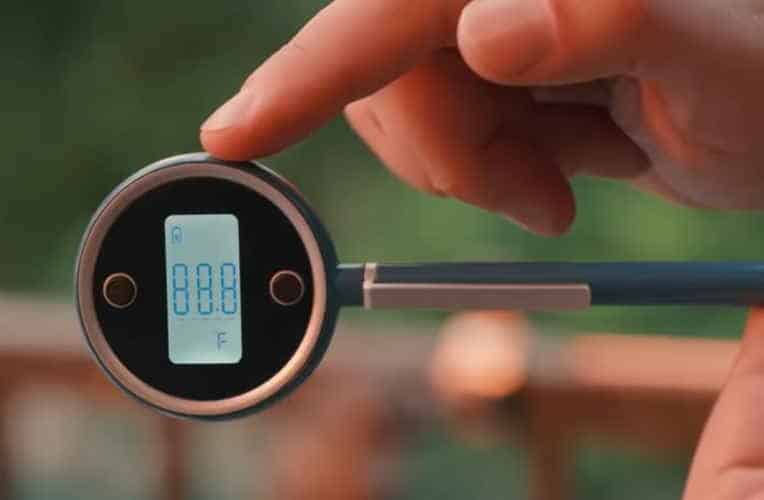
What Other Things Can You Measure with a Meat Thermometer?
As said earlier, the term meat thermometer is a misnomer, as this tool is pretty versatile. You can actually use this thermometer for measuring the temperature of the water, the doneness of homemade bread, the temperature of your ice cream base, or even your refrigerator’s temperature.
Final Thoughts
Having the right oil temperature is incredibly important for executing the recipe perfectly. Not having the right temperature, especially for frying, will result in either undercooked or burnt food, not to mention the ruined taste of improperly cooked food. This is why professionals use thermometers in their kitchen to achieve precision and perfection in whatever they are cooking.
4 Comments
Comments are closed.
Discover Other ChefsTemp Products
Discover more recipes and learn kitchen tricks by joining our cooking family on Facebook.
You may also like:
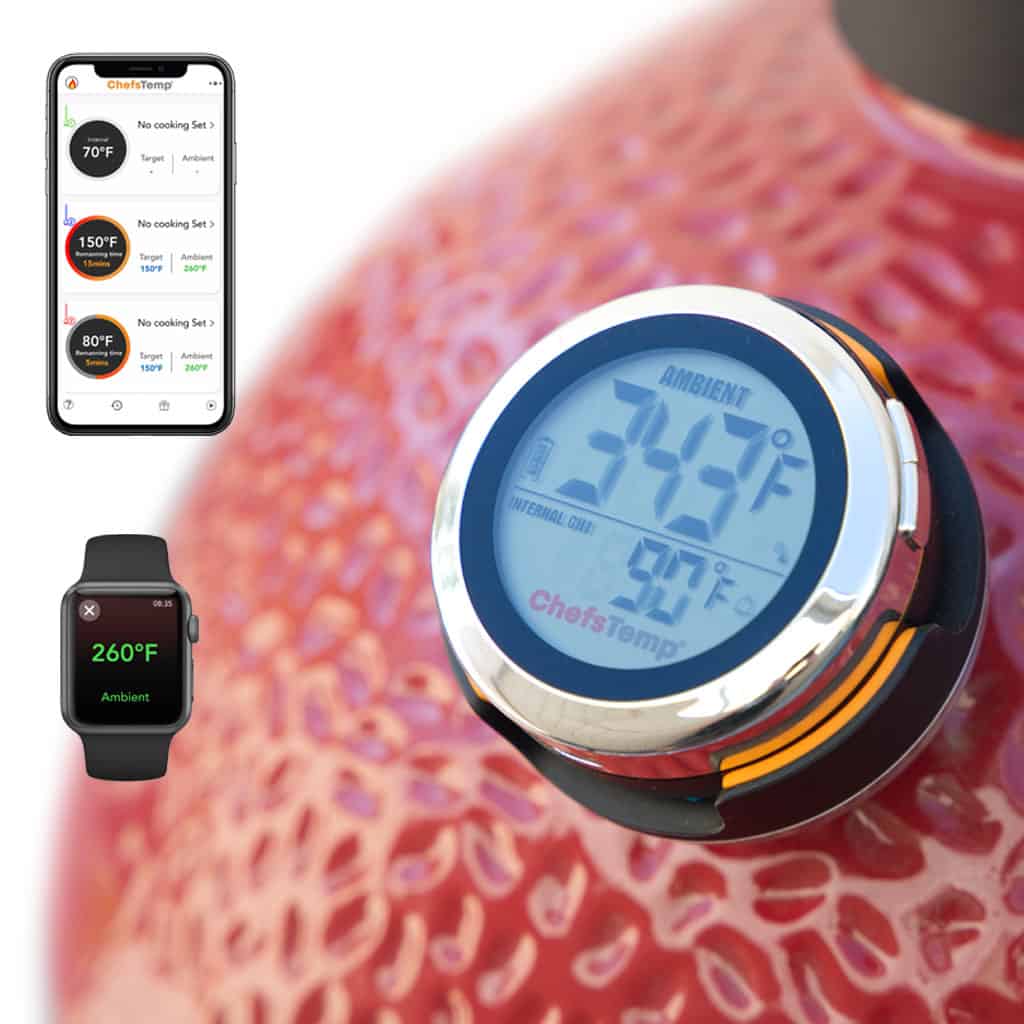
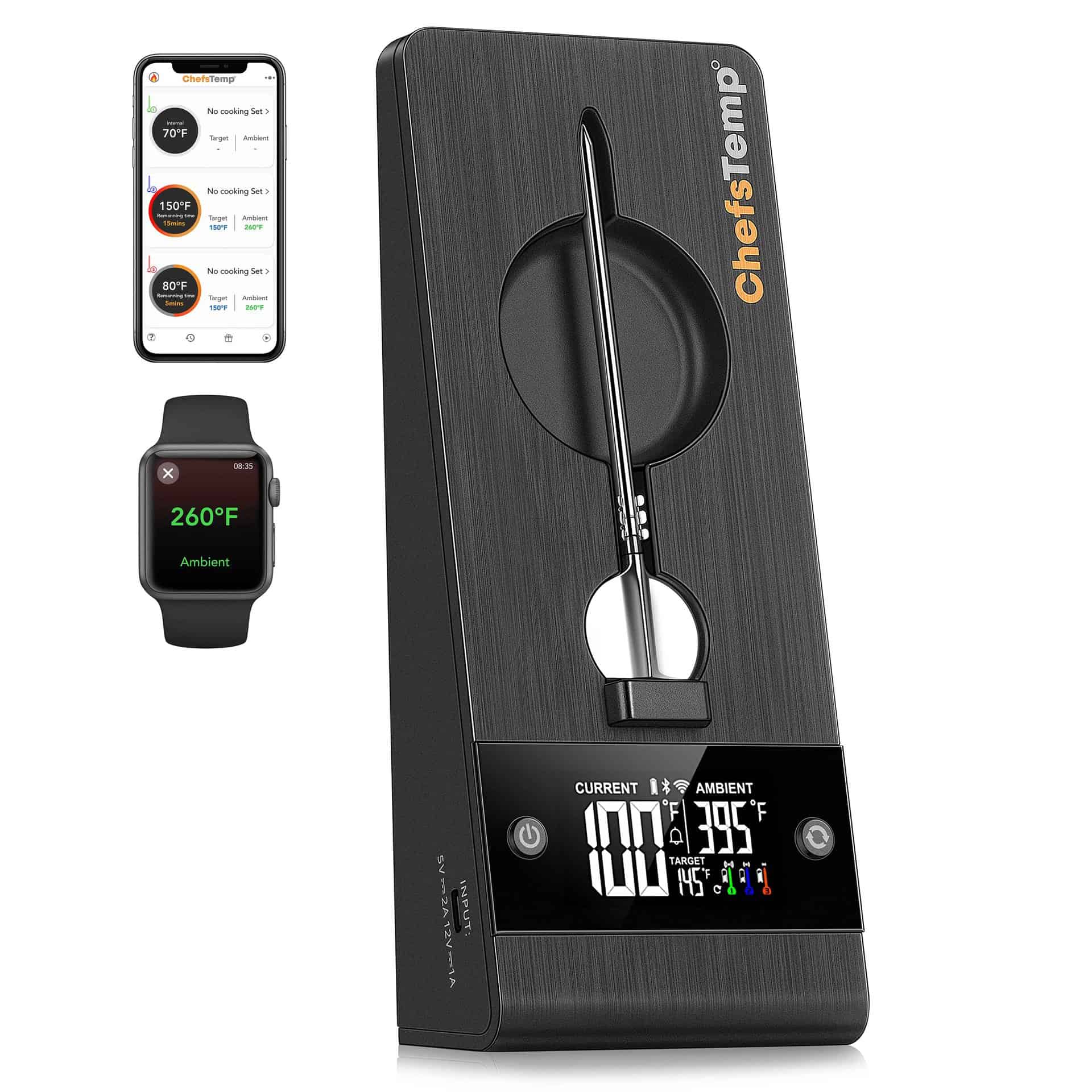
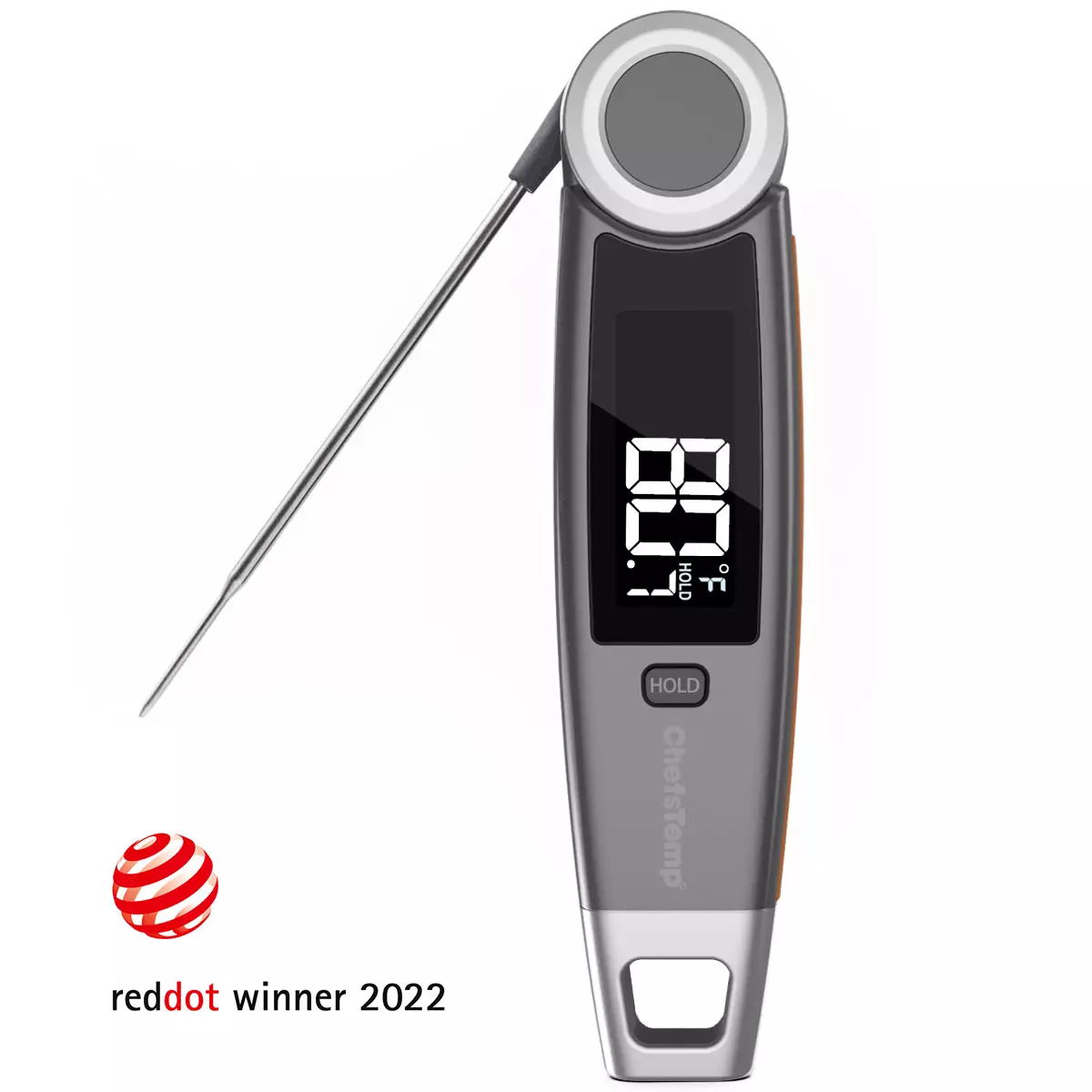
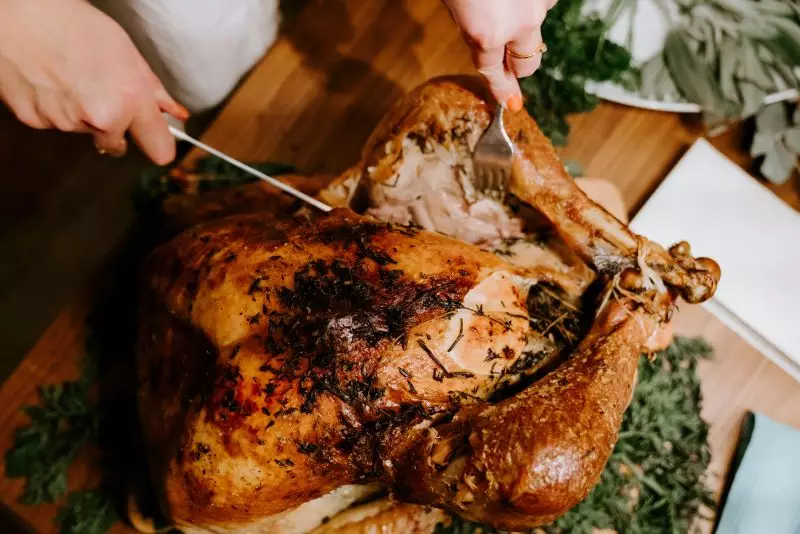
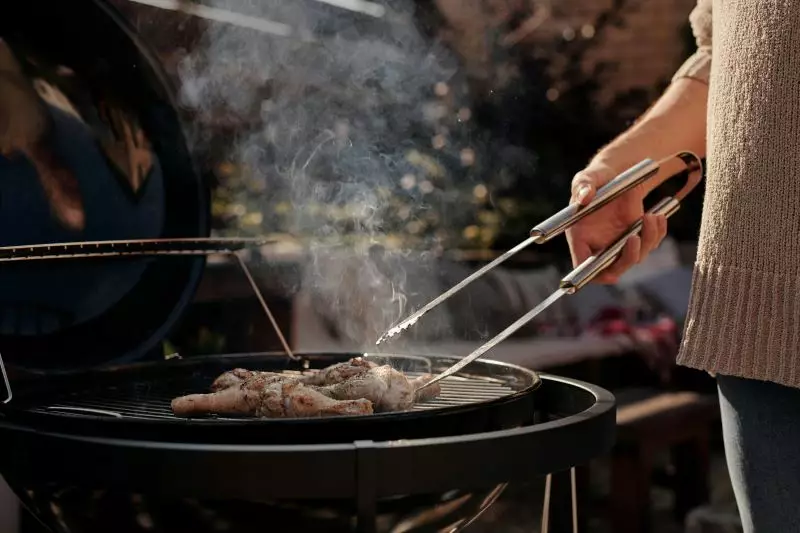
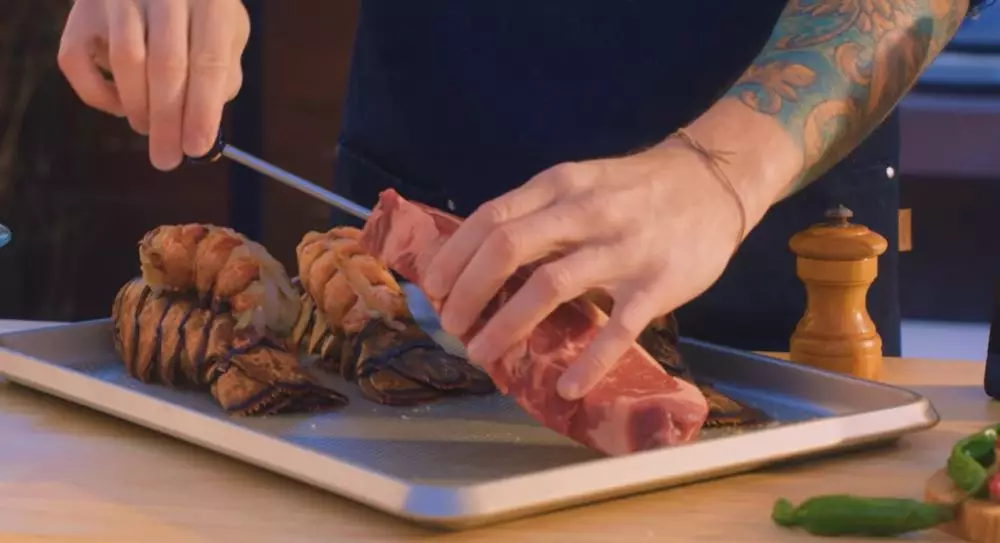
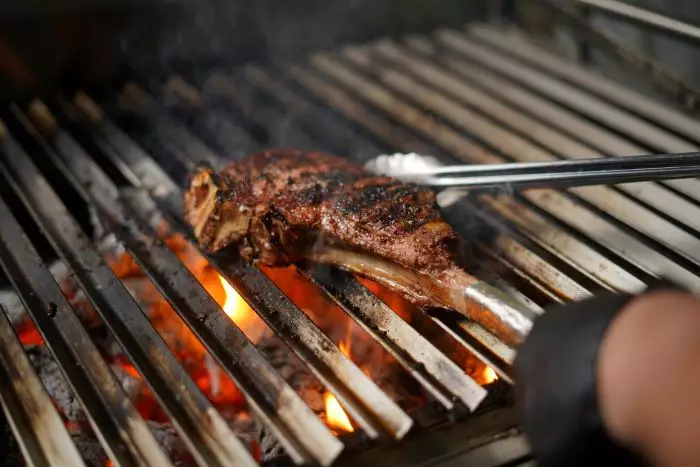
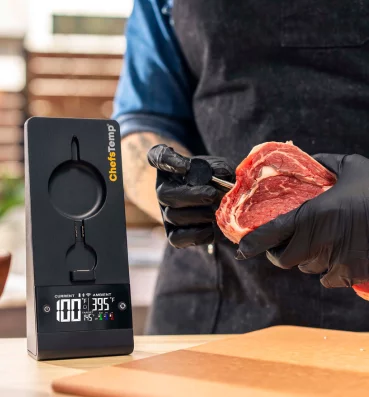


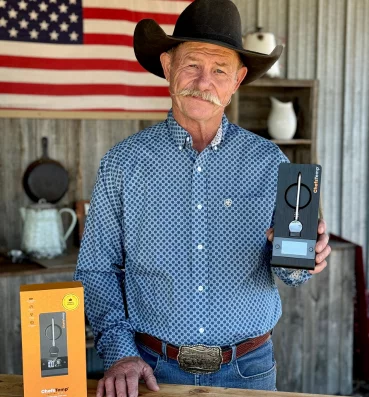
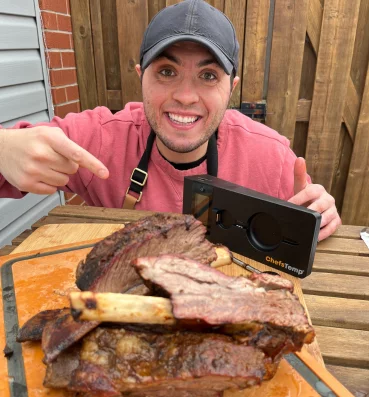
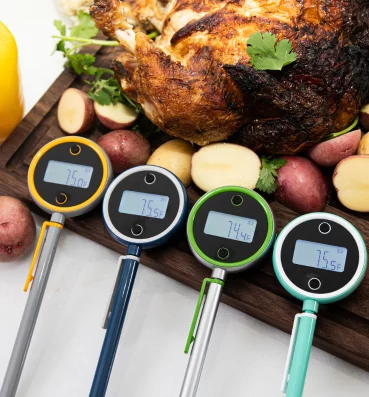
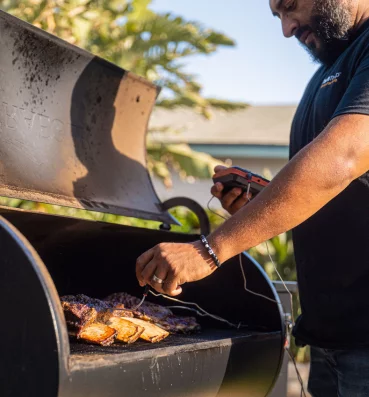
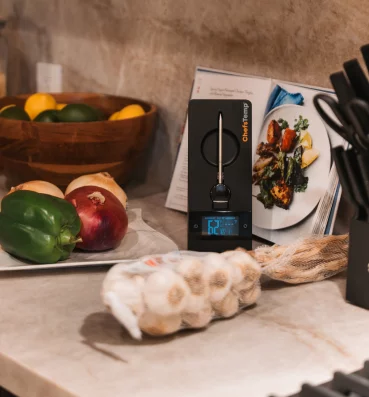

The way you integrated data,ダッチワイフcase studies,
[…] infrared thermometer is also ideal for checking the oil for deep frying (such as for cooking batter-dipped chicken). It provides a fast, accurate, and safe alternative to […]
[…] can use a meat thermometer in a deep fryer, but it is not the best option. Meat thermometers are designed to measure the internal temperature of meat, which is […]
[…] something other than cooking meat. This convenient instrument can likewise assist with checking the temperature of your oil at whatever points you’re doing some […]